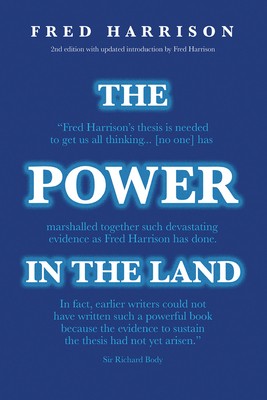
- We will send in 10–14 business days.
- Author: Fred Harrison
- Publisher: Shepheard-Walwyn Publishers
- ISBN-10: 0856835420
- ISBN-13: 9780856835421
- Format: 15.2 x 22.9 x 2 cm, softcover
- Language: English
- SAVE -10% with code: EXTRA
Reviews
Description
Fred Harrison's thesis is that land speculation is the major cause of depressions. He shows how the land market functions as a junction box which regulates the power flowing between Labour and Capital, and how land speculation periodically throws the switches on the productive power of men and machines, causing economic stagnation. This theory was acknowledged by philosophers such as Adam Smith and Karl Marx, and social reformers ranging from Winston Churchill to Leo Tolstoy, but it has been forgotten by today's economists and policy-makers. The hypothesis is tested against the historical facts and the recent booms and slumps, and is found to offer a powerful explanation for postwar trends in unemployment and the distribution of income.
EXTRA 10 % discount with code: EXTRA
The promotion ends in 20d.21:53:38
The discount code is valid when purchasing from 10 €. Discounts do not stack.
- Author: Fred Harrison
- Publisher: Shepheard-Walwyn Publishers
- ISBN-10: 0856835420
- ISBN-13: 9780856835421
- Format: 15.2 x 22.9 x 2 cm, softcover
- Language: English English
Fred Harrison's thesis is that land speculation is the major cause of depressions. He shows how the land market functions as a junction box which regulates the power flowing between Labour and Capital, and how land speculation periodically throws the switches on the productive power of men and machines, causing economic stagnation. This theory was acknowledged by philosophers such as Adam Smith and Karl Marx, and social reformers ranging from Winston Churchill to Leo Tolstoy, but it has been forgotten by today's economists and policy-makers. The hypothesis is tested against the historical facts and the recent booms and slumps, and is found to offer a powerful explanation for postwar trends in unemployment and the distribution of income.


Reviews